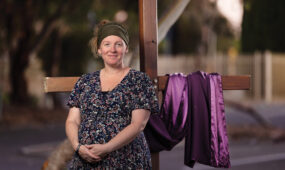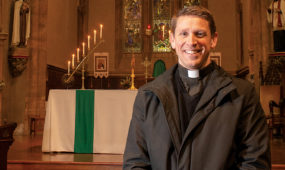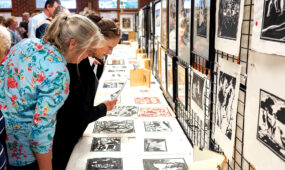Warning from women on ‘harmful’ prostitution bill
Local
Decriminalising prostitution is back on the political agenda in South Australia with a Parliamentary select committee poised to complete its review of a bill introduced by Tammy Franks MLC last year.

An Adelaide lawyer and a former prostitute from Western Australia are two women who have made submissions to the SA Parliament strongly opposing the Repeal of the Sex Act Bill on the basis it will increase exploitation of women and ‘gendered’ violence.
Linda Watson was a single mother in her 20s, struggling to survive on a part-time job as a receptionist for a lawyer, when a Perth madam persuaded her that she could earn a lot of money through prostitution.
Advertisement
“I desperately needed a fridge and beds for my children and because she said I would only have to work for two months and no-one would know what I was doing, I became a sex worker,” Ms Watson said.
Two months turned into 18 years as a prostitute and brothel owner, but in 1997 she finally had the courage to quit the sex industry.
Since then she has run a refuge for girls and women wanting to escape prostitution. With the help and support of the then Catholic Archbishop of Perth, Barry Hickey, she established Linda’s House of Hope in Perth.
Ms Watson recently contacted the Adelaide Archdiocese, thanking Archbishop Patrick O’Regan for taking a stand on moral issues such as abortion and voluntary assisted dying and expressing her concern over the sex work bill.
“Unfortunately even Christian children are not immune to the lure of this industry and alerting their parents to this issue is vital, so they can write to their local politicians expressing their concerns and asking them not to support any attempts to decriminalise prostitution,” she said.
“The community needs to be made aware of the propaganda being pushed about the ‘benefits’ of decriminalisation. There are no benefits. There is only heartache from the destruction of lives.”
Ms Watson has been involved in previous campaigns against legalising prostitution in SA and other states. She has made a lengthy submission to the select committee reporting on the current bill before Parliament.
“For over 20 years, I have helped countless women who have been trapped in the destructive prostitution lifestyle, which is nothing like the glamorous one portrayed in some Hollywood movies,” Ms Watson wrote in her submission.
“I’ve had sex workers contact me from all over Australia, so I know what is going on in other states. I personally know about the damage the sexual services industry causes to vulnerable women; how it destroys their self-esteem and injures their physical and emotional health.
“Those who participate in this degrading work are always negatively affected by experiences that go hand-in-hand with this type of ‘occupation’.
“I have seen what goes on behind closed doors … the high rates of drug and alcohol dependency and the prevalence of mental health issues (PTSD) and eating disorders caused by the maltreatment that sex workers are exposed to on a daily basis.”
Advertisement
Ms Watson said it was not possible to make a brothel a safe work place because “it always has been, and always will be, a high risk environment in which to make a living”.
“It is ironic that women have fought hard for many years to keep sexual harassment out of the work place and this unacceptable behavior has also been denounced by today’s #MeToo movement. Decriminalising prostitution is comparable to decriminalising or condoning domestic violence,” she said.
Ms Watson said no parent wants their daughter to be a “hooker” because they know that prostitution can be “vile and disgusting” and they can’t bear to think of their daughter being involved in it in any way.
“Given that we feel this way about our own daughters, shouldn’t we experience a similar outrage at the thought of other people’s daughters also being degraded by prostitution?”
Adelaide lawyer Joanna Howe also expressed her opposition to the bill in a submission to the SA Parliament, saying it would be detrimental to the achievement of gender equality.
In her submission to the SA Parliament on the Statutes Amendment (Repeal of Sex Work Offences) Bill 2020, Dr Howe described the bill as a “poorly conceived piece of legislation based on weak evidence that decriminalisation ameliorates the vulnerable position of women working in prostitution”.
She said the bill would not change the “precarious” nature of sex work and was likely to lead to more women entering prostitution in SA.
“It is predicated on a model of decriminalisation that has failed to protect women in prostitution in other jurisdictions in which it has been introduced and it has led to an increase in prostitution in those jurisdictions,” she wrote.
“The rationale for decriminalisation is that prostitution is a free choice, it is inevitable and meets a legitimate societal need and that the removal of criminal penalties for women will enable them to enforce their workplace rights and access legal remedies under the law. Nothing could be further from the truth.
“Decriminalisation further enhances the vulnerability of women in prostitution. As the New Zealand experience attests, women will be bonded in sham contracting arrangements and subject to the substantial power and control of brothel owners.
“Women in prostitution typically do not freely choose to work in the sex industry. Even when this ‘choice’ is made without coercion, the evidence finds that most women have made this ‘choice’ in a highly constrained and precarious context.”
Dr Howe, an Associate Professor in Law at the University of Adelaide and consultant with Harmers Workplace Lawyers, said decriminalising prostitution was a retrograde step that would be harmful to women.
Describing it as a form of “gendered violence”, she said it was not acceptable in a pluralist democracy like Australia which seeks to uphold women’s human rights and equal participation in society.
She urged the SA Parliament to adopt the Swedish model which removes criminal penalties for women in prostitution but criminalises the activities of buyers and brothel operators.
“This legislative reform, based on the Swedish model, should be part of a wider package of social reform aimed at assisting and supporting women to exit prostitution,” she wrote.
“Sweden’s model has been the subject of two decades of intense review and in the ensuing two decades, many countries have followed the Swedish approach.”
“In contrast, only one country and two Australian jurisdictions have adopted the decriminalisation model proposed by the bill. The bill is a retrograde step and should be rejected,” she said.








Comments
Show comments Hide comments